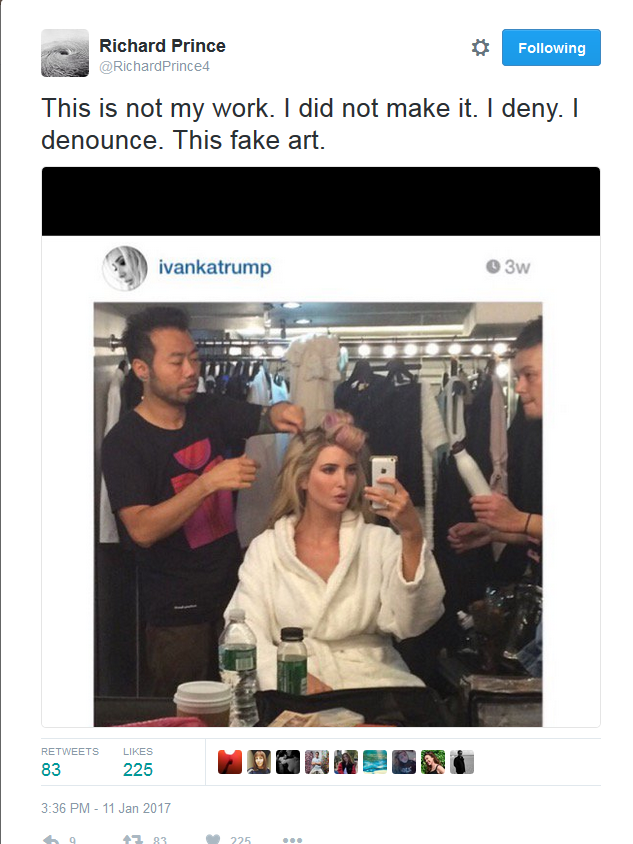There has been much discussion about the impact of the Presidential election on the art market, amidst much generalized anxiety about "fake news." What about "fake art?" Never one to be behind the curve, artist Richard Prince has stepped into the spotlight (to the extent he left). Declaring that one of his controversial “New Portraits” works of Instagram posts of others that was sold to Ivanka Trump is “fake” and that he “denounce[s]” it, Prince raises interesting questions about what the legal ramifications of such a repudiation might be. In this instance he has apparently refunded Ms. Trump’s money, but following on last year’s surprising Peter Doig trial (surprising that it got to trial, not that Mr. Doig won), a hypothetical artist making such a declaration might have some vulnerability under both common law, if not under the Visual Artists Rights Act of 1990, 17 U.S.C. § 106A (VARA).
Fake News, Fake Art? Richard Prince Disavows Work Depicting Ivanka Trump
Topics: Richard Prince, Patrick Cariou, Visual Artists Rights Act of 1990, Art Market Monitor, VARA, Twitter, 17 U.S.C. 106A, Ivanka Trump



